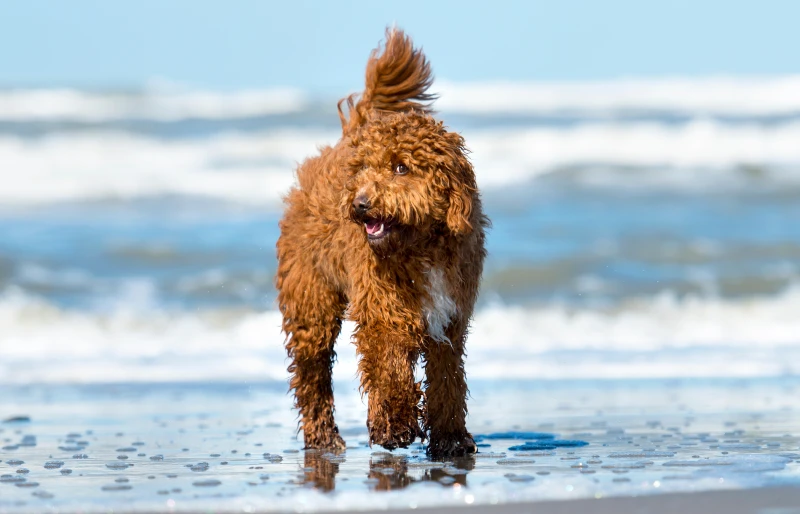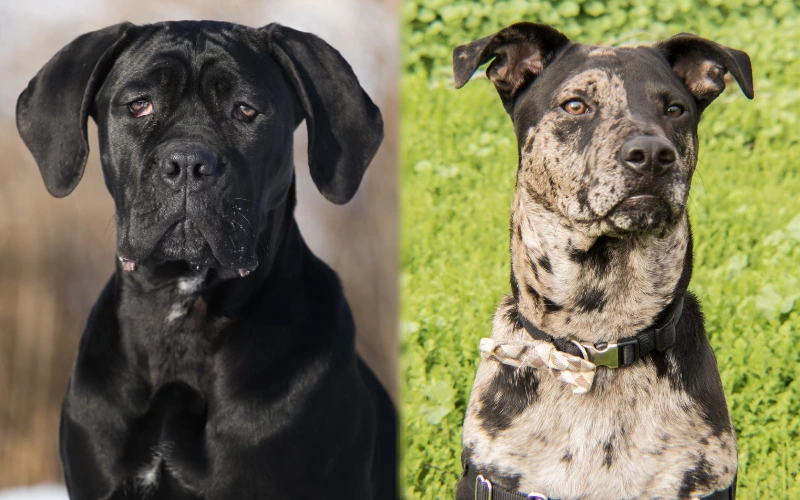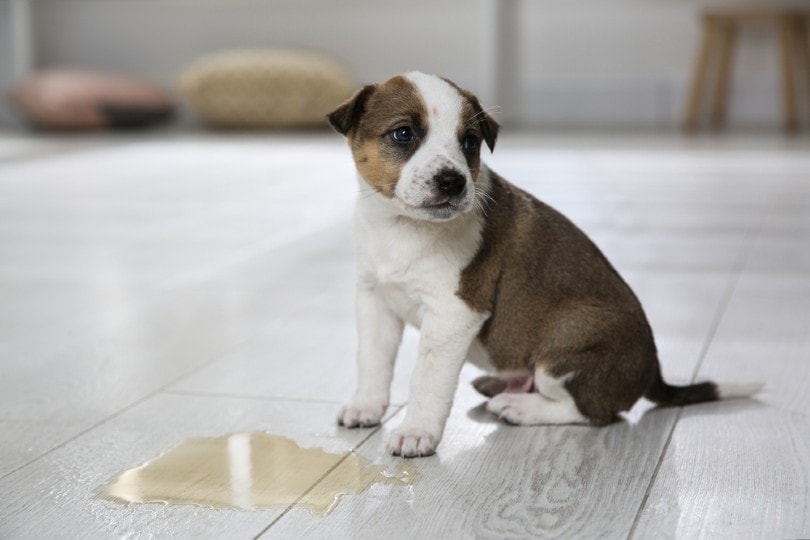Are Maltese Aggressive? Temperament & Personality Traits
Updated on
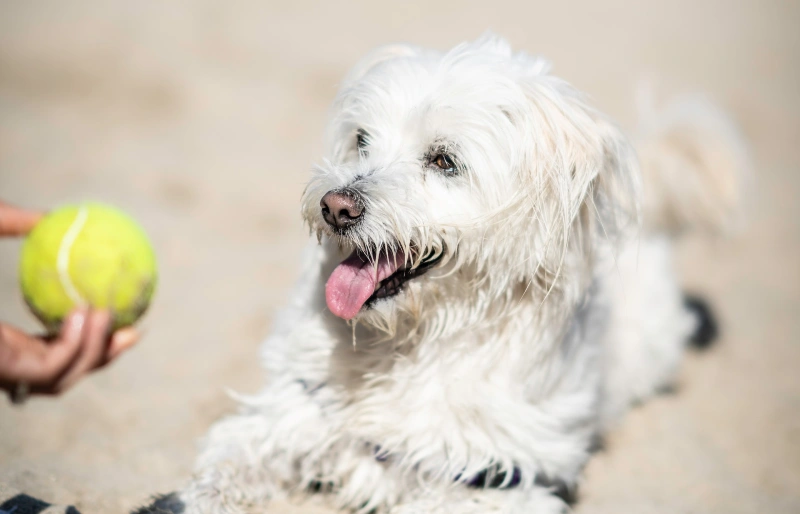
When choosing a family dog, pet owners prefer smaller breeds like the Maltese or the Beagle. Smaller breeds are loved for their adorable size and affectionate nature. But that doesn’t mean they’re exempt from aggressive behavior.
If you’re concerned about Maltese dogs being potentially aggressive, you’re in luck. These dogs are not known for being aggressive and can be quite gentle and affectionate. Still, predicting a dog’s aggression is impossible due to factors like small dog syndrome, improper or inadequate training, underlying health issues, and temperament.
In this article, we’ll explore the temperament and behavioral patterns of a Maltese and the potential causes of aggression. Keep reading to understand why your Maltese may be aggressive and how to avoid or curb such behavior.
Are Maltese Dogs Aggressive?
Most Maltese dogs have sweet and affectionate personalities and rarely showcase aggressive behavior. This breed is known for being friendly around humans and playful with other animals. Plus, they are gentle with children, making for the perfect family pet.
Still, it’s worth noting that no dog breed is exempt from the possibility of aggression. Dogs are individual animals. So, their temperament can vary based on their training, socialization, and breeding experiences.
Under certain circumstances, any dog can develop aggression and fear, even if it’s a small breed like the Maltese. When threatened, these dogs exhibit aggressive behavior as a form of self-defense. You’ll find them barking, growing, or biting under immense stress.
However, this is not normal for a breed like the Maltese, so it’s most likely a result of inadequate socialization and training. You can prevent such behavioral issues by properly socializing and training them from a young age. That means helping them learn appropriate behavior around humans and animals with the help of positive training.
If your Maltese was well-socialized and trained, their aggression might be due to pain or an underlying medical issue. Consulting your veterinarian is the best course of action if your Maltese starts acting aggressively out of the blue.
The History of Maltese
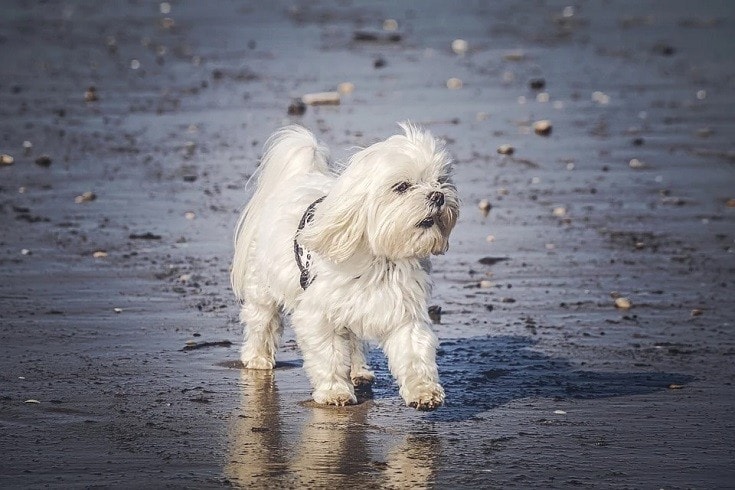
The origin of the Maltese dates back 2,000 years on the Mediterranean island of Malta. Located South of Italy, Malta is home to one of the oldest toy breeds in the world. There’s no exact evidence of how the Maltese breed was created, but many theories suggest that the breed was brought over to Malta by the Phoenicians. The Phoenicians ruled the Mediterranean before the rise of Greece and the Greek empire.
Their ancestors had no history of aggression and were loved for their docile and affectionate nature. However, ancient breeding practices were less regulated than modern ones. So, some lap dogs may have exhibited aggressive behavior due to poor socialization or breeding.
Maltese dogs quickly became popular among nobility and royalty throughout the years. Queen Victoria and Queen Elizabeth I both owned Maltese dogs, and the breed was also seen in many European courts.
Today, this breed is known for its intelligent, playful, and affectionate personality. Their small size is one of their most valued traits. But they’re also loved for their charming smiles and low-maintenance coats.
Factors That May Make a Maltese Aggressive
No dog breed is inherently aggressive, but certain breeds are more dangerous than others. Luckily, Maltese dogs are part of the calmest and docile breed, so aggression is uncommon amongst these pups.
By and large, aggression in dogs can be pinned to a failure of humans to properly train their pup in a loving environment. If you find an aggressive Maltese, they may have experienced improper or inadequate training or poor housing environments. They could also be prone to small dog syndrome. Here are a few factors that influence a Maltese’s aggression:
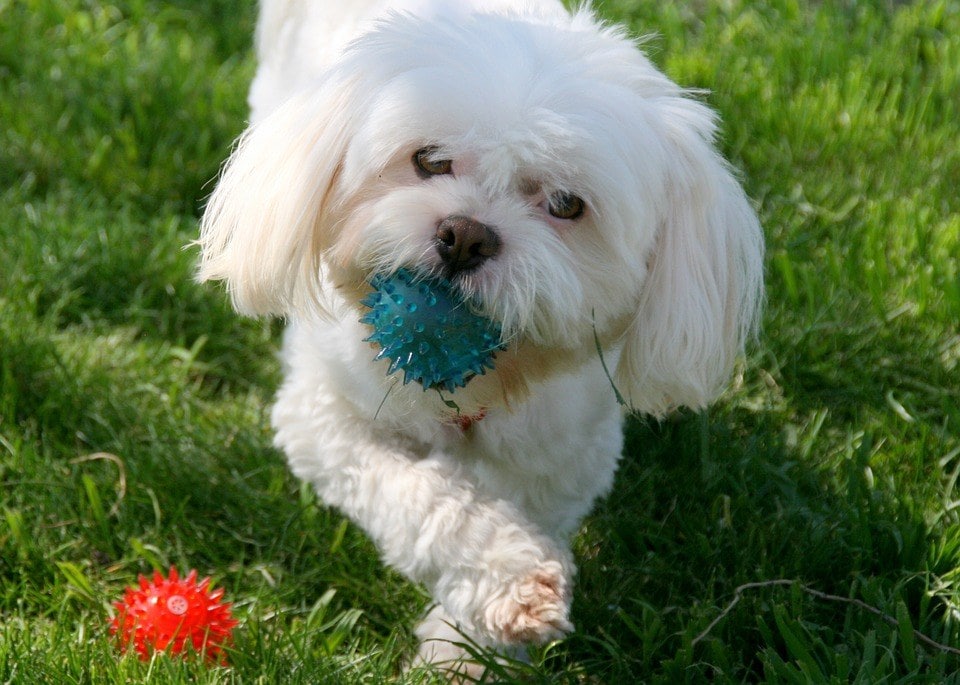
Training and Environment
Improper training and environment can contribute to aggressive behavior in Maltese. This breed (like all other dog breeds) thrives on positive reinforcement training, such as rewards and encouragement. They do not react well to harsh and punitive training; such practices are cruel and often lead to a dog riddled with anxiety and fear. Staying in a stressful environment for too long will result in aggressive behavior as a defense mechanism.
Maltese dogs that are not socialized early on will act fearful and aggressive around other dogs and humans. Living in chaotic and unpredictable environments also makes these dogs anxious and reactive. That includes loud households with frequent arguments.
All dogs require exercise, regardless of their breed, size, age, or gender. The Maltese is no exception to this rule. It’s crucial to help your dog meet their daily exercise and mental stimulation requirements. Maltese dogs may become destructive and aggressive when led to boredom and frustration. A structured routine, regular exercise, and playtime can help prevent such issues in your Maltese.
Individual Personality and Temperament
Although classified into breeds, all dogs have unique personalities, like humans. Your Maltese’s aggression may be due to its temperament and past. These factors can influence how your dog reacts to different situations and stimuli.
For example, a Maltese dog may have a naturally dominant and assertive personality. Such an individual may be more prone to aggressive behavior when threatened or challenged. On the other hand, Maltese dogs with anxiety or depression may act more defensive when scared. It is important to note that your personality traits and behavior may also rub off on your dog while you train them. Therefore, if you adopt a shy individual but are constantly upset or angry yourself, your dog may begin reflecting your personality over time. It is believed that dogs do this to “fit in” with their pack, and they often associate their owners as their pack leaders/role models.
It’s crucial to consider each dog’s personality and temperament when studying negative behavior. Instances of aggressive behavior and false media representation have given Pit Bulls a bad reputation, but that doesn’t make them an inherently dangerous breed.
In the case of Maltese dogs, they have a positive and docile reputation. However, aggressive behavior in dogs is still unpredictable. If your Maltese is displaying signs of aggression, contact your vet or dog trainer immediately.
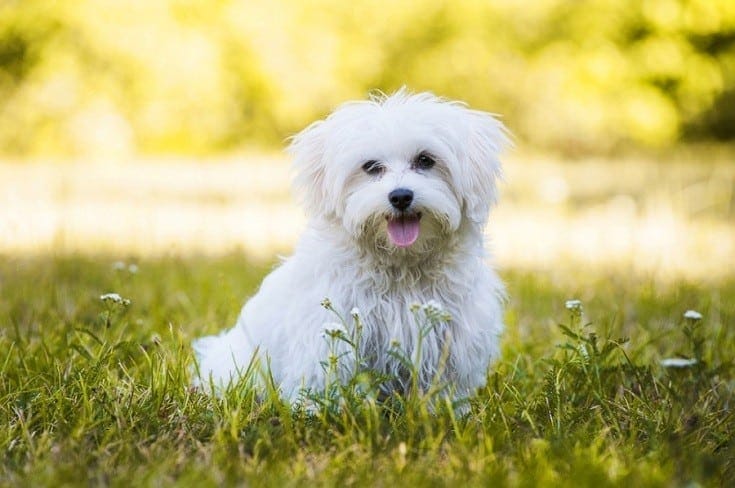
Injury or Underlying Health Issues
In some cases, your Maltese may aggressively snap or bite if they’re in pain from an injury or an underlying health issue that hasn’t been addressed. This type of aggression often happens if someone inadvertently touches a body part that’s very tender to the touch; instead of remembering their manners, your dog may suddenly react because of the pain they feel in the area. If you suspect that your dog is injured or unwell, consult with your veterinarian as soon as possible.
Small Dog Syndrome
“Small dog syndrome” is a term used to describe a specific behavioral pattern found in small dogs, such as the Maltese. These dogs may display aggressive behavior to appear dominant and compensate for their small size. They may feel more vulnerable in front of larger dogs, developing this defensive attitude to compensate.
Maltese dogs are more likely to develop small dog syndrome due to their protective and loyal personalities. They may feel the need to protect their owners from larger breeds and develop this attitude to intimidate other dogs or humans.
Of course, it’s worth noting that not all small dogs exhibit this syndrome, and their aggression may occur due to a wide variety of factors. That even includes genetics, so make sure to buy from responsible breeders who provide proof of screenings.
Are Maltese Dogs Banned?
Since Maltese dogs are not known for being dangerous or aggressive, they aren’t banned in any country. In fact, they are adored worldwide and accepted by the British Kennel Club and the American Kennel Club (AKC) as a standard breed.
Still, some countries have breed-specific legislations and restrictions regarding the ownership and breeding of dogs. In some circumstances, that also includes Maltese dogs. For example, a specific city or town may require dog owners to muzzle their pets in public if they are a certain breed.
Meanwhile, other areas may prohibit the breeding or ownership of these dogs completely. Before adopting or buying a dog, it’s always best to research local regulations to avoid paying a fine or having to put your dog down.
How to Prevent Your Maltese From Becoming Aggressive

Early socialization and proper training are surefire ways to prevent negative behavior in a Maltese dog. Here are some tips to help control your Maltese’s reactiveness and dominance:
- Socialize your Maltese early on. This process is crucial for all dogs, but small dog breeds like the Maltese may need it more to prevent exhibiting small dog syndrome. Socializing your dog can be as simple as introducing them to people, animals, and new environments in the puppy stage to improve their ability to adapt.
- Implement positive reinforcement. You can practice positive reinforcement training by rewarding your Maltese for good behavior. Regarding bad behavior, gentle reprimand works best for these dogs. Not only does this build trust between the owner and the pet, but it also encourages them to repeat positive behaviors in the future.
- Exercise regularly. Maltese dogs need about 30 minutes of exercise every day, which is an easy requirement to meet. You can ensure your Maltese gets enough exercise by taking them on walks, providing puzzle toys, and prioritizing playtime. Bored and under-stimulated dogs are a lot likelier to become aggressive and destructive at home.
- Avoid harsh training. Punishment-based training methods may seem like an easier route to take, but they can cause anxiety in fear in all dogs. Considered a sensitive breed, Maltese dogs are likely to face trauma due to harsh training. Then, they exhibit aggressive behavior as a defense mechanism.
- Seek professional help. If your Maltese is displaying aggression out of the blue, the cause may be something other than harsh training or a stressful environment. The dog could also have an underlying or painful medical issue, so it’s best to consult your vet as soon as possible. If the issue is not medical, contact a professional dog trainer or behaviorist.
Conclusion
Maltese dogs aren’t commonly aggressive dogs, but it’s hard to predict an individual dog’s behavior based on its breed. Any dog may become destructive or aggressive under certain circumstances. It mainly occurs due to negative environments or punitive training.
Maltese dogs can be well-behaved, docile, and friendly companions. However, that’s only possible when exposed to positive training, early socialization, and lots of love.
Featured Image Credit: Daniel Torobekov, Pexels





